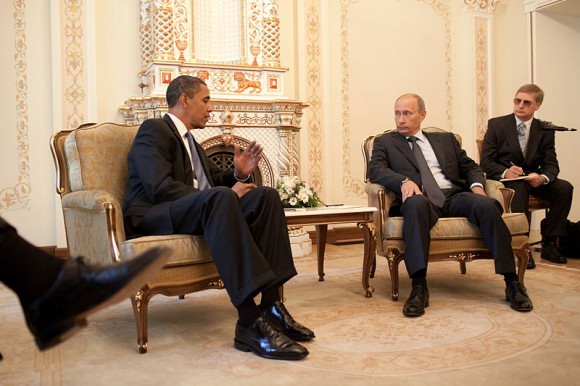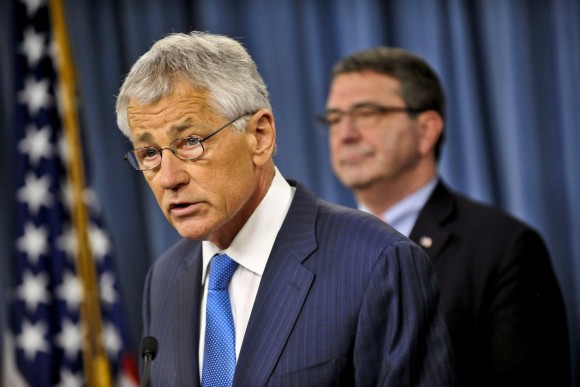At the National Journal, Michael Hirsh reports:
It’s been more than a year since incoming CIA Director John Brennan signaled his intention to shift drone warfare to the Pentagon as soon as possible. Brennan, a career spook, was said to be determined to restore the agency to its roots as an espionage factory, not a paramilitary organization. And President Obama endorsed his plan to hand drone warfare over to the military, according to administration officials.
But a funny thing happened on the way back to cloak-and-dagger. According to intelligence experts and some powerful friends of the CIA on Capitol Hill, including Sen. Dianne Feinstein, the agency may simply be much better than the military at killing people in a targeted, precise way—and, above all, at ensuring that the bad guys they’re getting are really bad guys. And that distinction has become more important than ever at a time when Obama is intent on moving away from a “permanent war footing” and on restricting targeted killings exclusively to a handful of Qaida-linked senior terrorists.
 Hirsh notes that the December drone strike that hit a Yemeni wedding procession and killed a dozen or so civilians was one conducted by the Pentagon, not the CIA. The point Hirsh and others are making is that CIA is better at targeting their strikes so as to avoid civilian casualties.
Hirsh notes that the December drone strike that hit a Yemeni wedding procession and killed a dozen or so civilians was one conducted by the Pentagon, not the CIA. The point Hirsh and others are making is that CIA is better at targeting their strikes so as to avoid civilian casualties.
But there are clear problems with this reasoning. Even if it’s accurate, we don’t have any way to confirm it since “No public data exist on the accuracy and reliability of the strikes launched by the CIA versus those by the Pentagon.” The supposed comparative advantage of the CIA in this respect is just something we’re supposed to take on faith.
But it’s actually more than faith because we have to ignore the facts that have come to light about countless CIA-run strikes and the civilians they killed. It’s like when John Brennan said publicly in 2011 that “in the last year ‘there hasn’t been a single collateral death” – a claim without any credibility.
A November exclusive at Foreign Policy by Gordon Lubold and Shane Harris gets to what I think is the real obstacle to the Obama administration’s promise to shift drones to DoD:
Keeping the drones with the CIA also offers legal cover for drone strikes, former officials argued. By law, the military is not supposed to conduct hostile actions outside a declared war zone, although special forces do so on occasion acting at the CIA’s behest.
One caveat to this is that Obama orders military operations in secret all over the world all the time. Special Operations Command operates in scores of countries without the knowledge or consent of Congress or the American people. But their missions and activities are secret and – to reluctantly cite Donald Rumsfeld – their activities are an unknown unknown. CIA drone strikes, on the other hand, have proven next to impossible to fully hide from the public and that extra attention would probably lead to pressure for the Obama administration to open up DoD drone strikes to transparency and accountability – something he can avoid if he keeps it with CIA.
Really, Obama is about six years late on his promise to close Gitmo; I don’t know why anybody is expecting him to keep this promise either.







